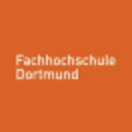Introduction to Dortmund University of Applied Sciences and Arts
Dortmund University of Applied Sciences and Arts is a national university located in Dortmund, North Rhine-Westphalia, Germany. It is one of the largest universities in North Rhine-Westphalia, Germany. It is famous for its rich academic resources and diversified curriculum, especially in engineering, computer science, economics and design.
Overview
Student size: about 12,300 to 15,000 students, including a certain number of foreign students.
Faculty: 699 employees, including 232 professors, teachers have rich industry experience, can ensure that the teaching content is closely integrated with the future work environment.
History and establishment time
The school was founded in 1971, but its history can be traced back to the Royal Mechanical Engineering School in 1890. In 1929, the university opened the major of electronic technology, which was one of the earliest majors of this type in the Kingdom of Prussia at that time; in 1964, it was renamed Dortmund Higher Technical College.
School Strength
Course Setting: It offers more than 70 bachelor's and master's degree courses covering computer science, engineering, economics, social sciences, architecture and design. For example, students majoring in international management in its economics department have the opportunity to study or intern abroad, the information engineering department has majors such as medical informatics and economic informatics, and the film and television majors in the design department are taught by media experts.
Teaching Mode: It adopts a teaching mode that combines theory with practice. Through cooperative projects and internships with local companies, students can accumulate practical work experience and improve their problem-solving ability during the learning process, laying a solid foundation for students to enter the workplace smoothly after graduation.
Institutional Nature
National University.
Educational Philosophy
Adhere to the combination of theory and practice, and both teaching and scientific research focus on solving practical problems, and are committed to cultivating students' ability to solve practical problems so that students can better adapt to the future work environment. Emphasis is placed on cultivating students' professional skills and comprehensive qualities through high-quality teaching, personalized support and international vision, so that they can pursue attractive career paths in a changing society.
Key laboratories and disciplines
Key disciplines: The Department of Information Engineering is the largest among all universities in North Rhine-Westphalia, and its telecommunications technology research is in a leading position in Germany. In addition, majors such as medical informatics, economic informatics, vehicle and traffic technology, architecture, and design also have strong strengths.
Key laboratories: No clear key laboratories were found in the school, but the school has established cooperative relationships with many companies, providing students with practice places and internship opportunities, which can be regarded as an important support for its practical teaching.
Faculty
It has seven departments, including Architecture, Design, Computer Science, Information and Electronic Engineering, Mechanical Engineering, Applied Sociology and Economics.
Ranking
According to 2023 statistics, the school ranks 2465th out of 14,160 universities in the world; 985th out of 2789 universities in Europe; 140th out of 370 universities in Germany; 27th out of 65 universities in North Rhine-Westphalia; and 2nd out of 3 universities in Dortmund.
Expenses
Tuition fees: The school does not charge tuition fees for students.
Other fees: Students need to pay a semester fee of 299.92 euros per semester for meals in the school cafeteria and free public transportation in North Rhine-Westphalia. In addition, students need to prepare about 853 euros per month for living expenses, including rent, health insurance, groceries and other expenses.
Campus
Campus location: Located in the Ruhr area, the fourth largest metropolitan area in Europe, it is distributed in three different campuses in Dortmund, namely the Sonnenstraße campus near the city center, which mainly accommodates the School of Mechanical Engineering, Electrical Engineering and Information Technology; the Max-Ophüls-Platz campus, which is dedicated to the School of Design; and the Eichlinghofen campus, which is close to the Technical University of Dortmund and concentrates on the School of Applied Social Sciences, Business Research, Computer Science and Architecture, and the administrative office is located in the city center area.
Teaching facilities: The school's teaching facilities are advanced, equipped with modern laboratories, computer rooms, libraries, etc., which provide strong support for students' learning and research.
Living facilities: The living facilities around the campus are complete, including student dormitories, restaurants, supermarkets, etc., providing convenient living conditions for students.
-

Heidelberg University
-

University of Freiburg
-

University of Jena
-

University of Marburg
-

University of Rostock
-

University of Halle-Wittenberg
-

University of Bayreuth
-

Leipzig University
-

University of Tübingen
-

Humboldt University of Berlin
-

Mesoamerican University
-

Istmo University
-

Mariano Galvez University of Guatemala
-

Regional University of Guatemala
-

Galileo University
-

Francisco Marroquín University
-

Rafael Landívar University
-

University of the Valley of Guatemala
-

University of San Carlos of Guatemala
-

Technological Institute of Tlaxcala Plateau
-

Golfo University
-

Technological University of South Sonora
-

Technological University of Huejotzingo
-

Tizimín Institute of Technology
-

Chilpancingo Institute of Technology

